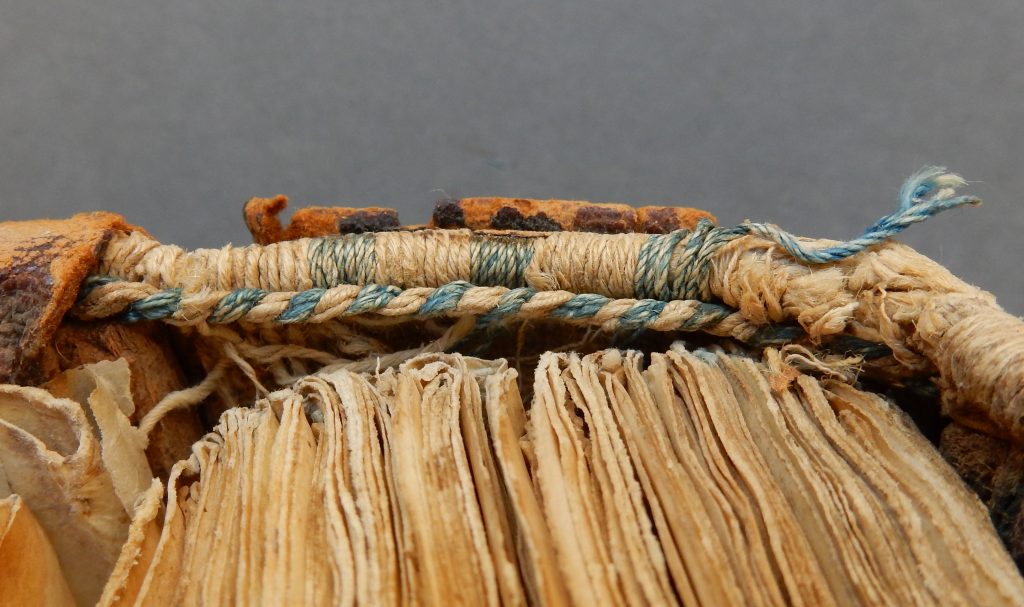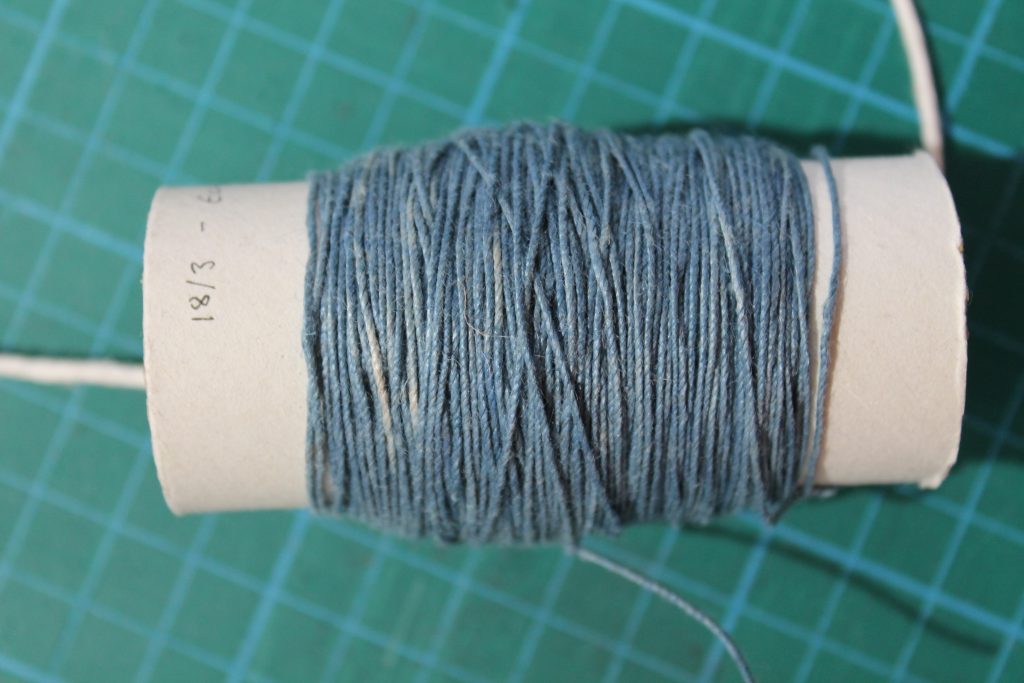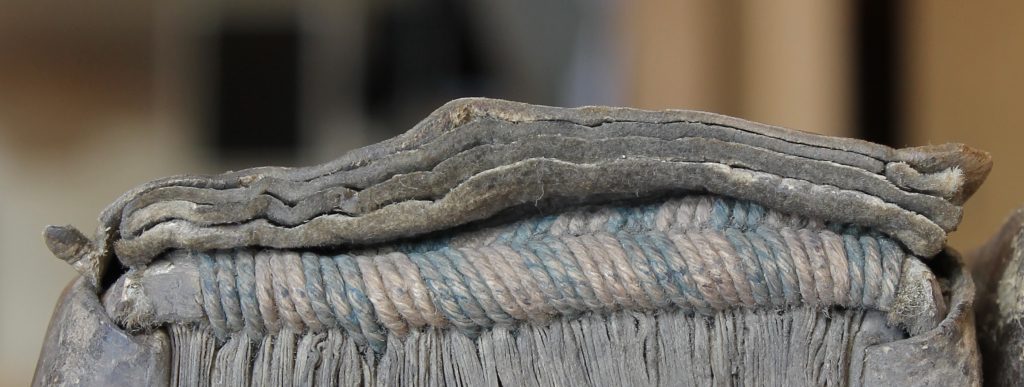Some observations about indigo…
I was recently sent a fascinating image (see below) of an endband by a colleague who noted areas of un-dyed thread which he suspected was symptomatic of the hand-dying process used for indigo. This effect is certainly something I’ve observed when dying myself: the thread is dyed in skeins and the twist of the skein can result in areas of thread that are not exposed to the dye.


Indigo has a unique dying process which often doesn’t penetrate the centre of the thread; any wear to the thread will reveal the un-dyed core (see below).

The indigo dying process can result in a wide range of tones, so colour intensity alone is not a good way of identifying indigo. From experience, and from observing many historic endbands, indigo endbands are often more pale than one might expect when compared with a modern synthetic indigo.
None of the above can provide absolute proof of indigo, but careful observation can certainly go a long way in helping to increase your understanding.
Arthur Green, July 2019

I’ll be looking much more closely at my endbands in the future. Thanks for the article